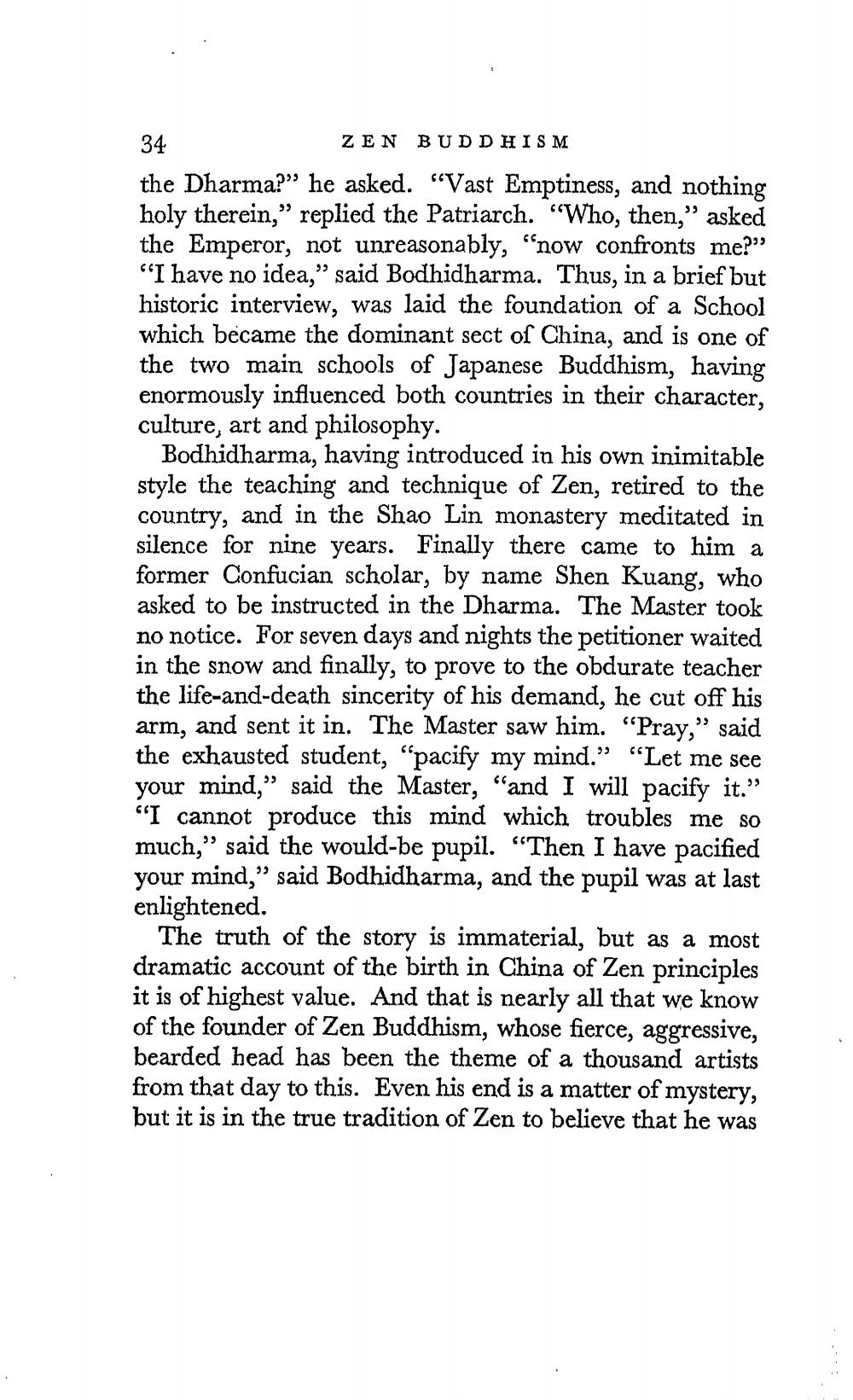________________
34
ZEN BUDDHISM the Dharma?” he asked. “Vast Emptiness, and nothing holy therein,” replied the Patriarch. “Who, then," asked the Emperor, not unreasonably, "now confronts me?" "I have no idea," said Bodhidharma. Thus, in a brief but historic interview, was laid the foundation of a School which became the dominant sect of China, and is one of the two main schools of Japanese Buddhism, having enormously influenced both countries in their character, culture, art and philosophy.
Bodhidharma, having introduced in his own inimitable style the teaching and technique of Zen, retired to the country, and in the Shao Lin monastery meditated in silence for nine years. Finally there came to him a former Confucian scholar, by name Shen Kuang, who asked to be instructed in the Dharma. The Master took no notice. For seven days and nights the petitioner waited in the snow and finally, to prove to the obdurate teacher the life-and-death sincerity of his demand, he cut off his arm, and sent it in. The Master saw him. “Pray,” said the exhausted student, "pacify my mind." "Let me see your mind," said the Master, "and I will pacify it." “I cannot produce this mind which troubles me so much," said the would-be pupil. “Then I have pacified your mind," said Bodhidharma, and the pupil was at last enlightened.
The truth of the story is immaterial, but as a most dramatic account of the birth in China of Zen principles it is of highest value. And that is nearly all that we know of the founder of Zen Buddhism, whose fierce, aggressive, bearded head has been the theme of a thousand artists from that day to this. Even his end is a matter of mystery, but it is in the true tradition of Zen to believe that he was




